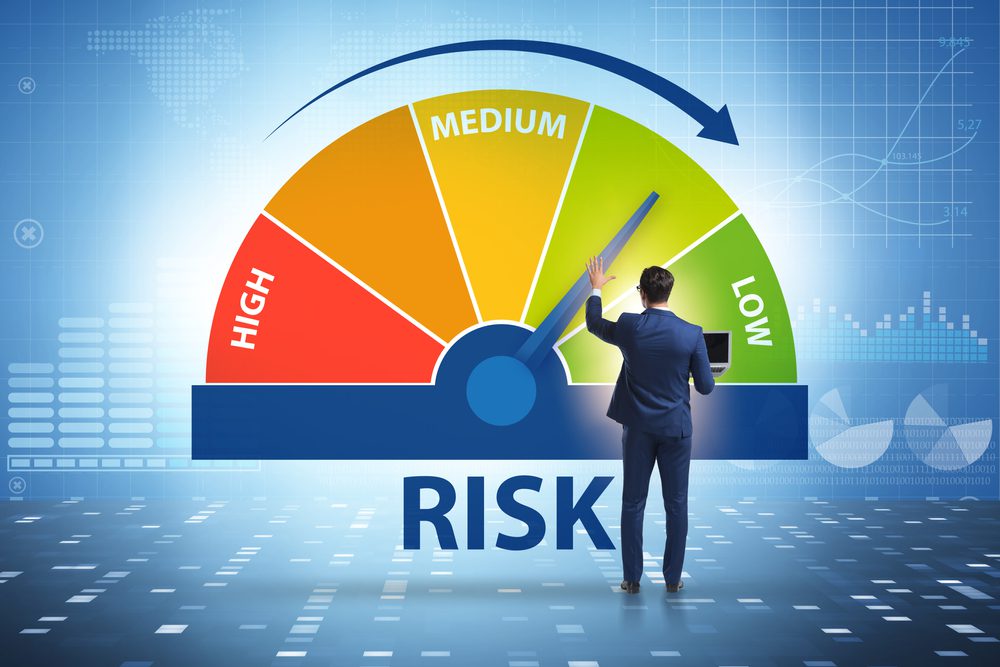How can a cybersecurity risk assessment matrix help you understand the risk landscape?
Risk assessment matrices are powerful tools that can help you identify and assess the extent of risks that your business may be exposed to. Here’s how it helps you understand the risk landscape better.
How can a cybersecurity risk assessment matrix help you understand the risk landscape?
Risk assessment matrices are powerful tools that can help you identify and assess the extent of risks that your business may be exposed to. Here’s how it helps you understand the risk landscape better.
Understanding the risk landscape through a cybersecurity risk assessment matrix
Cybersecurity risk assessment matrices are powerful tools that are pivotal in helping businesses identify, assess, and manage the cybersecurity threats that they may be exposed to. It provides a structured framework that businesses can follow to evaluate and categorise cybersecurity risks, which in turn simplifies the process of risk management.

Easier risk evaluation
One of the major ways that a cybersecurity risk assessment matrix contributes to a better understanding of the risk landscape is by helping businesses gauge the two critical components of risk; likelihood of occurrence and severity of impact. With a risk assessment matrix, businesses can assign probabilities to the likelihood of a cyber risk event occurring and measure the impact if the event were to occur.
With this comprehensive categorisation, businesses can prioritise risks, addressing critical cybersecurity risks first and managing other risks as required. This eases the burden on resources and allows businesses to mitigate risks that pose the highest risk to their IT operations and assets.

Easier risk evaluation
One of the major ways that a cybersecurity risk assessment matrix contributes to a better understanding of the risk landscape is by helping businesses gauge the two critical components of risk; likelihood of occurrence and severity of impact. With a risk assessment matrix, businesses can assign probabilities to the likelihood of a cyber risk event occurring and measure the impact if the event were to occur.
With this comprehensive categorisation, businesses can prioritise risks, addressing critical cybersecurity risks first and managing other risks as required. This eases the burden on resources and allows businesses to mitigate risks that pose the highest risk to their IT operations and assets.
Ease communication
As the risk assessment matrix is a visual representation of the cybersecurity risk landscape of a business, it is much easier to comprehend and relay to internal and external stakeholders. This eases communication between cybersecurity professionals, executives, board members, and other stakeholders.
With this ease of communication, complex cybersecurity risk data can be shared amongst departments and external stakeholders, increasing the business’s collective ability to identify and counteract risks.


Ease communication
As the risk assessment matrix is a visual representation of the cybersecurity risk landscape of a business, it is much easier to comprehend and relay to internal and external stakeholders. This eases communication between cybersecurity professionals, executives, board members, and other stakeholders.
With this ease of communication, complex cybersecurity risk data can be shared amongst departments and external stakeholders, increasing the business’s collective ability to identify and counteract risks.

Support strategic goals
A cybersecurity risk assessment matrix supports the strategic goals of cybersecurity risk management by helping businesses formulate mitigation strategies that are tailored to their requirements and circumstances. This means that cybersecurity risks that have a high likelihood of impact and severity can be addressed adequately through immediate and robust mitigation measures.
This strategic alignment of resources and efforts ensures that businesses are both cost-effective and highly functional in their approach to cybersecurity risk management.

Support strategic goals
A cybersecurity risk assessment matrix supports the strategic goals of cybersecurity risk management by helping businesses formulate mitigation strategies that are tailored to their requirements and circumstances. This means that cybersecurity risks that have a high likelihood of impact and severity can be addressed adequately through immediate and robust mitigation measures.
This strategic alignment of resources and efforts ensures that businesses are both cost-effective and highly functional in their approach to cybersecurity risk management.
Creating an effective risk assessment matrix for cybersecurity
While risk matrices are a highly popular mode of risk assessment, if not conducted properly, they can do more harm than good. A good understanding of the benefits and limitations of risk matrices is necessary when making this distinction and creating an effective risk assessment matrix for cybersecurity.
Here is how you can do so:
Identify IT assets
Firstly, identify all the IT assets and resources within
your organisation.
Identify risks
With the assets identified, determine the threats that could affect these assets.
Determine likelihood
Assess the likelihood of each threat occurring and affecting your assets.
Estimate impact
Evaluate the potential impact of each threat if a threat event were to occur.
Prioritise risks
Prioritise the identified based on likelihood and impact for ease of management.
Create mitigation strategies
Develop mitigation strategies for each risk that was identified and quantified.
Implement and monitor
Implement mitigation strategies and continuously monitor their effectiveness.
Gain a comprehensive understanding of the risk landscape through a professional solution for cybersecurity risk assessment
As a risk assessment matrix for cybersecurity provides a highly detailed overview of your risk landscape, conducting an effective risk assessment is key to a successful risk management function.
SECTARA’s all-inclusive solution for cybersecurity risk assessment provides a high level of functionality for your organisation to conduct risk assessments and identify the risks that you may be exposed to.
Our security software is designed to be simple, precise, and accessible to all practitioners, and our dedication to quality is ensured by our alignment with global standards for risk management like ISO 31000 and the NIST framework.
Gain access to our 14-day free trial by clicking the button below and elevate your awareness of the risk landscape immediately. No credit cards or other commitments are necessary.
Some of the industries we serve
Government
Identify, monitor, and manage systemic risks associated with policy implementation, public safety, and national security with a scalable and configurable risk assessment solution.
Critical infrastructure
Obtain insights to identify and mitigate potential threats to critical infrastructure like energy, transportation, and communication systems through professional risk assessments.
Mining
Ensure safe, secure, and efficient operations and overcome common mining challenges like equipment failure and environmental hazards via a professional risk assessment solution.
Defence
Obtain a comprehensive view of potential threats to national and regional security and implement effective risk management strategies with military-grade risk assessment solutions.
Healthcare
Ensuring the safety of patients, staff, and other stakeholders while managing risks associated with medical procedures and data privacy through a configurable risk assessment solution.
Finance
Identify, monitor, and manage critical risks like market volatility and data breaches with a risk assessment solution to protect stakeholder assets and ensure regulatory compliance.
Consultancy
Help your clients make informed decisions about risk management by leveraging insights from a professional risk assessment solution that helps identify, address, and monitor risks.
Cybersecurity
Protect your digital assets with our advanced cybersecurity risk assessment solutions. Stay ahead of evolving threats and fortify your defences with comprehensive risk assessments.
Education
Identify and mitigate compliance, finance, operational, and reputational risks in processes such as student selection and regulatory adherence with professional risk assessments.
Experience the capabilities of SECTARATM first-hand. Sign up for our 14-day free trial today.
Start your 14-day free trial
What you get with our free trial
2 users (Account Admin, Org & BU Admin, Assessor, Viewer)
2 concurrent assessments
2 organisations & business units
In product training
The ability to export assessments to MS Word
MS Excel treatment plans
White label SECTARATM platform
White-label exported documents
Audit records
Experience the capabilities of SECTARATM first-hand. Sign up for our 14-day free trial today.
What you get with our free trial
2 users (Account Admin, Org & BU Admin, Assessor, Viewer)
2 concurrent assessments
2 organisations & business units
In product training
The ability to export assessments to MS Word
MS Excel treatment plans
White label SECTARATM platform
White-label exported documents
Audit records
Start your 14-day free trial
Frequently Asked Questions
A risk matrix is a visual representation of the risk landscape of a particular organisation. It shows the likelihood of occurrence and severity of impact for each of the risks that may be exposed to.
A cybersecurity risk assessment includes the identification of IT assets, threat and vulnerability assessment, likelihood and impact estimation, risk score calculation, risk prioritisation, mitigation strategy formulation, and continuous monitoring and improvement.
The 5 levels of risk rating in risk assessment matrices are very low, low, medium, high, and very high. These ratings are based on the likelihood and impact of each particular risk.



